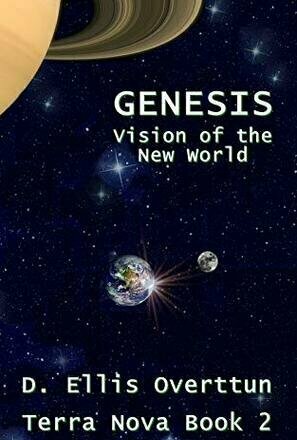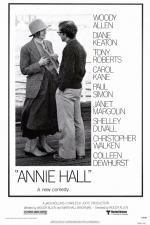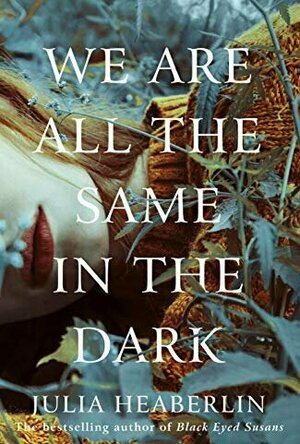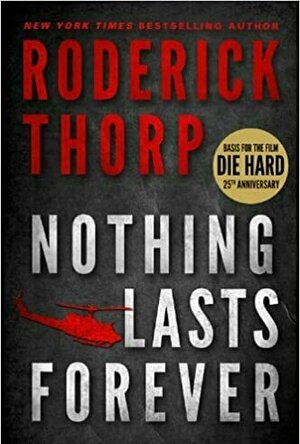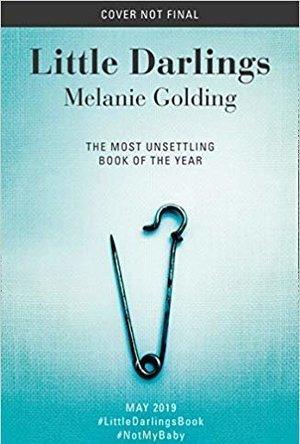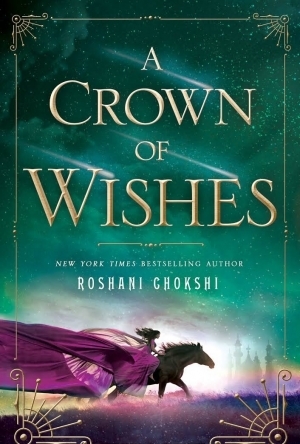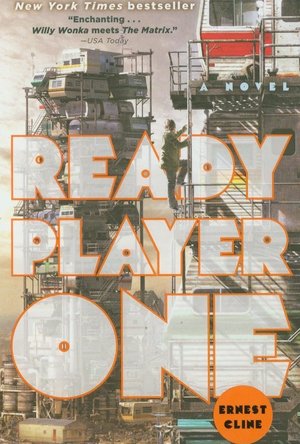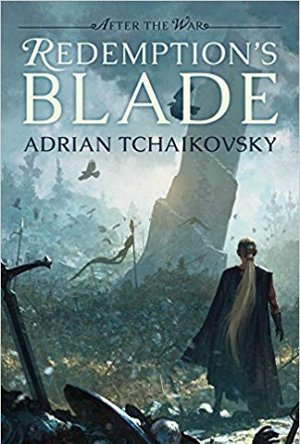Search
Search results
Phil Leader (619 KP) rated Genesis: Vision of the New World (Terra Nova #2) in Books
Nov 13, 2019
Following on from the events in Universe: Awakening, the first book in the series (which you need to read before this one), this picks up events on Arkos after some time has passed. Minister Odessa is still concerned about the findings of the DEUS probes, and when there is an astronomical anomaly and a disaster on the planet itself she realises that she needs her most trusted allies to determine the threat that is posed. Meanwhile there is a change at the head of the lower-status Gendu, both in terms of politics and religion, which aren't universally popular. Society may be under threat from within and without.
This is a long book, but like the first one it covers a lot of ground. There is a far more investigation of the Gendu, their politics and their religion. The succession of Darius as head of the Gendu, and the rise of a greedy and flawed priest in the religious sect provide the backbone of the story. The Celesti are frustrated by only being allowed to observe and not interfere, but are focused on exploring the anomaly. Odessa also starts a related project to enhance some of the indigenous apes.
This is not a book that can be read in isolation. As the middle of a trilogy it answers few questions from the first book and raises many that are due to be resolved in the final installment. It is clear that everything is converging, momentum carrying people and events along as much they are exerting their own control. The author has constructed a world where the plot is driven from a number of different directions and this ensures that each chapter has something to add.
The writing is very confident. Overttun has really found his voice as an author and uses it to show the reader all of his creation. From the clinical efficiency of Odessa's experiments to the dirt and grime of the seedier areas of Gendu society, the narrative weaves its way inexorably onwards. The prose is lean and efficient, lending impetus to the story. The exploits of the already known characters will entertain as they are old friends, the new characters are all interesting and nuanced.
This is building to be a fabulous epic trilogy, epic in depth, breadth and scale. It isn't science fiction, it isn't a political thriller, it isn't a philosophical treatise. It is all these and more. I really cannot wait to see what happens next. Stunning.
This is a long book, but like the first one it covers a lot of ground. There is a far more investigation of the Gendu, their politics and their religion. The succession of Darius as head of the Gendu, and the rise of a greedy and flawed priest in the religious sect provide the backbone of the story. The Celesti are frustrated by only being allowed to observe and not interfere, but are focused on exploring the anomaly. Odessa also starts a related project to enhance some of the indigenous apes.
This is not a book that can be read in isolation. As the middle of a trilogy it answers few questions from the first book and raises many that are due to be resolved in the final installment. It is clear that everything is converging, momentum carrying people and events along as much they are exerting their own control. The author has constructed a world where the plot is driven from a number of different directions and this ensures that each chapter has something to add.
The writing is very confident. Overttun has really found his voice as an author and uses it to show the reader all of his creation. From the clinical efficiency of Odessa's experiments to the dirt and grime of the seedier areas of Gendu society, the narrative weaves its way inexorably onwards. The prose is lean and efficient, lending impetus to the story. The exploits of the already known characters will entertain as they are old friends, the new characters are all interesting and nuanced.
This is building to be a fabulous epic trilogy, epic in depth, breadth and scale. It isn't science fiction, it isn't a political thriller, it isn't a philosophical treatise. It is all these and more. I really cannot wait to see what happens next. Stunning.
Simon Pegg recommended Annie Hall (1977) in Movies (curated)
Kristy H (1252 KP) rated We Are All the Same in the Dark in Books
Sep 24, 2020
Stunning, shocking thriller filled with dark twists
Ten years ago, Trumanell Branson disappeared, along with her no-good daddy. But it's beautiful Trumanell her Texas town remembers and mourns. And, despite no arrests, they blame her brother, Wyatt, who lives alone on the old Branson homestead, hated by the entire town. When Wyatt, a trucker, finds a girl in a field of dandelions, he thinks it's a sign. As for the town cop, Odette--who has a long history with Wyatt--she fears the discovery of this girl will only turn the town against Wyatt fully and permanently. But when she goes to retrieve her, she feels drawn to the girl. Odette is haunted by Trumanell's disappearance, and now, the arrival of this mystery girl. As she digs into the past and the present, she uncovers shocking secrets about her town and the night that forever changed it.
"She has a bad, bad mystery to her. I can feel it deep in the hollow of my spook bone, the one my dad broke when I was a kid. My arm is never wrong."
This is an amazing, absorbing thriller that draws you in from the first page. Heaberlin writes so beautifully and lyrically--all these dark and horrific moments unfold in such beautiful prose. Her words astound me.
"There's no chatter about why I'm alone, scared, speeding on a prairie road with trees scattered like sailboats, thinking how my daddy, the town's late great top cop, told me to never come back to this little Texas hellhole unless it was to bury his ashes. Don't try to find the truth about Trumanell. Some answers are left to the by and by."
The characters here are beautiful--flawed, damaged, tender, and painted with a depth that will astound you. Troubled Odette, lost Wyatt, and Angel, the girl found in the field. They form a trio that one is unlikely to forget for quite some time.
This is a dark read--atmospheric and sad, and not always easy to read. Bad things happen in this town. Heaberlin's twists are true stunners. It's rare when a thriller takes me by surprise, but wow, I found myself shocked several times, and even better, unaware of the true culprit. How nice to read a mystery without guessing the ultimate ending.
Overall, this is a superb tale of a town held captive by its own secrets and tragedy. The characters come to life before your eyes through Heaberlin's elegant writing. It's shocking and twisted and one that shouldn't be missed. 4.5 stars.
"She has a bad, bad mystery to her. I can feel it deep in the hollow of my spook bone, the one my dad broke when I was a kid. My arm is never wrong."
This is an amazing, absorbing thriller that draws you in from the first page. Heaberlin writes so beautifully and lyrically--all these dark and horrific moments unfold in such beautiful prose. Her words astound me.
"There's no chatter about why I'm alone, scared, speeding on a prairie road with trees scattered like sailboats, thinking how my daddy, the town's late great top cop, told me to never come back to this little Texas hellhole unless it was to bury his ashes. Don't try to find the truth about Trumanell. Some answers are left to the by and by."
The characters here are beautiful--flawed, damaged, tender, and painted with a depth that will astound you. Troubled Odette, lost Wyatt, and Angel, the girl found in the field. They form a trio that one is unlikely to forget for quite some time.
This is a dark read--atmospheric and sad, and not always easy to read. Bad things happen in this town. Heaberlin's twists are true stunners. It's rare when a thriller takes me by surprise, but wow, I found myself shocked several times, and even better, unaware of the true culprit. How nice to read a mystery without guessing the ultimate ending.
Overall, this is a superb tale of a town held captive by its own secrets and tragedy. The characters come to life before your eyes through Heaberlin's elegant writing. It's shocking and twisted and one that shouldn't be missed. 4.5 stars.
Benedick Lewis (3001 KP) rated Nothing Lasts Forever (Die Hard, #1) in Books
Sep 30, 2020
Good to see origins to a great film (1 more)
Quick read - less than 250 pages
Only one perspective- feels like it needs more character viewpoints (1 more)
Prose can be difficult to follow
Surprising: film better than book
Nothing Lasts Forever was the framework for the great film Die Hard. Being a massive fan of the film as well as putting it under academic scrutiny, it was interesting to see the similarities and differences between book and film.
However, having seen Die Hard multiple times, it was sometimes difficult to picture the protagonist, Joe Leland, doing the John McClane things. Further more, the book only depicts Leland’s point of view and the story could have benefited from being told from multiple perspectives: Leland’s, the terrorists and the hostages. Unfortunately, the terrorists’ motive is summed up in one page and it doesn’t wholly satisfy, especially given in the film, the plot is more devious and fiendishly clever giving cinema one of its all time greatest villains.
To talk more about the comparisons is doing literature an injustice. Time and again, it needs to be reminded that they are two different mediums with different requirements. That said, there is definitely one big major difference that really distinguishes the two products of this idea and the only thing that can be said is that it is towards the end. Those that know the film and decide to read this book will know when you get to that part but it is one that really sets it apart.
Frank Sinartra played Leland in the prequel to this book, The Detective. It’s not essential that you read that book first to understand this one. Author Roderick Thorp plays catch up in the opening chapters. He does however spoil that story so if you are looking to read that, best put this to one side.
Thorp’s style is a little all over the place, especially regarding the set pieces and it can be difficult to imagine the scenes he is trying to depict. Leland is not the most likeable of heroes either and it can be difficult to root for him but it is a short story and can be done in one sitting so it’ll be over before you have the time to really dislike him.
Read this if you haven’t seen Die Hard. Read this but make sure you watch Die Hard rather adjacent to that. It would be surprising if you found the book better. In this case, the film is superior. A rare case indeed.
However, having seen Die Hard multiple times, it was sometimes difficult to picture the protagonist, Joe Leland, doing the John McClane things. Further more, the book only depicts Leland’s point of view and the story could have benefited from being told from multiple perspectives: Leland’s, the terrorists and the hostages. Unfortunately, the terrorists’ motive is summed up in one page and it doesn’t wholly satisfy, especially given in the film, the plot is more devious and fiendishly clever giving cinema one of its all time greatest villains.
To talk more about the comparisons is doing literature an injustice. Time and again, it needs to be reminded that they are two different mediums with different requirements. That said, there is definitely one big major difference that really distinguishes the two products of this idea and the only thing that can be said is that it is towards the end. Those that know the film and decide to read this book will know when you get to that part but it is one that really sets it apart.
Frank Sinartra played Leland in the prequel to this book, The Detective. It’s not essential that you read that book first to understand this one. Author Roderick Thorp plays catch up in the opening chapters. He does however spoil that story so if you are looking to read that, best put this to one side.
Thorp’s style is a little all over the place, especially regarding the set pieces and it can be difficult to imagine the scenes he is trying to depict. Leland is not the most likeable of heroes either and it can be difficult to root for him but it is a short story and can be done in one sitting so it’ll be over before you have the time to really dislike him.
Read this if you haven’t seen Die Hard. Read this but make sure you watch Die Hard rather adjacent to that. It would be surprising if you found the book better. In this case, the film is superior. A rare case indeed.
Haley Mathiot (9 KP) rated Wings (Wings, #1) in Books
Apr 27, 2018
This book had some good, some bad, some supremacy, some mediocrity. here's my warning now, that this has spoilers in it.
good: a wild twist. the idea that fairy's are plants never once crossed my mind, the idea that Laurel had flowers growing out of her back instead of actual wings was... kinda weird but also really cool. and in my opinion, the good over-weighed the bad.
bad: i remember very vividly that the boy she falls in love with is introduced in the first paragraph (or second, or something like that.) and that totally gave away that part of the plot. i knew right away she'd become involved with him. i would have liked the author to develop his character a little more, or develop Laurel's character a little more, before introducing him.
supremacy: it had me hooked from about the fifth chapter to the twenty-second. i literally read for five hours. that's a long time for me. i mean, i read A LOT and ALL THE TIME, but five hours at once? seriously. the only other times that's ever happened was for twilight and harry potter. very nice, Aprilynne.
mediocrity: the writing itself, the prose, the sentence structure, was not all that fabulous. it was just basic sentence structure most of the time, and ok vocabulary. the words themselves were not poetic and artful, something that you find in Edger Allen Poe or J K Rowling.
the last thing was the end. it left you hanging, a little. which, as a writer, is a smart and mean thing to do at the same time. i'm a writer, and in every single one of my books i leave my audience hanging. but as a reader, it's annoying. i the one thing i want to know is what happens about her and the boy thing? who does she end up with? i'll bet that the boy she met at school ends up with the girl who's had a crush on him forever, and she goes back to her fairy-boy. (can you tell i've forgotten some names and don't have the book with me?) whatever. but i hope there's a second one, because that one little thing will bug me from now until whenever the new one comes out (if there is one.)
of course, again, the book was addictive, and had a great twist. i will say that if i ever had a chance to read it again, i would probably not do it. but i will (if there is one) read the sequel. all in all, i did like this book. quite a lot. and i do recommend it to anyone who likes romance, fantasy, or adventure.
good: a wild twist. the idea that fairy's are plants never once crossed my mind, the idea that Laurel had flowers growing out of her back instead of actual wings was... kinda weird but also really cool. and in my opinion, the good over-weighed the bad.
bad: i remember very vividly that the boy she falls in love with is introduced in the first paragraph (or second, or something like that.) and that totally gave away that part of the plot. i knew right away she'd become involved with him. i would have liked the author to develop his character a little more, or develop Laurel's character a little more, before introducing him.
supremacy: it had me hooked from about the fifth chapter to the twenty-second. i literally read for five hours. that's a long time for me. i mean, i read A LOT and ALL THE TIME, but five hours at once? seriously. the only other times that's ever happened was for twilight and harry potter. very nice, Aprilynne.
mediocrity: the writing itself, the prose, the sentence structure, was not all that fabulous. it was just basic sentence structure most of the time, and ok vocabulary. the words themselves were not poetic and artful, something that you find in Edger Allen Poe or J K Rowling.
the last thing was the end. it left you hanging, a little. which, as a writer, is a smart and mean thing to do at the same time. i'm a writer, and in every single one of my books i leave my audience hanging. but as a reader, it's annoying. i the one thing i want to know is what happens about her and the boy thing? who does she end up with? i'll bet that the boy she met at school ends up with the girl who's had a crush on him forever, and she goes back to her fairy-boy. (can you tell i've forgotten some names and don't have the book with me?) whatever. but i hope there's a second one, because that one little thing will bug me from now until whenever the new one comes out (if there is one.)
of course, again, the book was addictive, and had a great twist. i will say that if i ever had a chance to read it again, i would probably not do it. but i will (if there is one) read the sequel. all in all, i did like this book. quite a lot. and i do recommend it to anyone who likes romance, fantasy, or adventure.
Haley Mathiot (9 KP) rated An Earl to Enchant (The Rogues' Dynasty #3) in Books
Apr 27, 2018
An Earl to Enchant by Amelia Grey
Genre: Historical Fiction, Romance
Rating: 1
After the first two chapters of this book, I was ready to give up. I gave it a little bit more just to see if it was worth it, and I sort of regret it. I could have been reading something else.
I felt like I knew everything after the first chapter, and that there was no reason to keep going. The character spilled her guts, the sexual tension was immediate and way too strong for a first meeting, and it felt typical. I knew what would happen: They’d meet, they’d sleep together, they’d get married, they’d fall in love. In that order. There was no mystery, there was nothing keeping me reading.
The characters seemed dense and melodramatic. For instance, Arianna fainted in the first chapter, and woke being “carried in strong arms” (the Earl). She “felt safe there for some reason.” But I was thinking the whole time, She doesn’t even know the guy. It felt wrong that she was so attracted to him and “felt safe” and “felt at home” when she—and I as a reader—didn’t even know the character very well. Also, after one argument she’s convinced herself that he’s ill tempered—when he’s not—and that keeps her from being open to him.
The writing wasn’t that great, either. The prose felt forced and hard to read, and the dialogue was awkward. It was as if the characters said more than they needed to, and said everything they thought, and described things unnecessarily. For example,
It’s just that I’m so happy to be outside for the first time in such a long time. I seldom left my room on the ship, and this is the first time I’ve been out of your house. Everything looks fresh and new.”
(Page 108, ARC)
I would have said “It’s just that I’m so happy to be outside for the first time in such a long time.” She had seldom left her room on the ship, and it was her first time outside of his house. Everything looked fresh and new. It’s less awkward... or maybe just less wordy.
There was just too much against this book to keep me reading. I will say that from what I read, Grey is good at developing the sexual tension. But that was another thing that was just too much for me.
All in all, I was expecting a lot more from the plot and characters than I got from An Earl to Enchant.
An Earl to Enchant was published April 6th. It got 4- and 5-star reviews on Amazon and Goodreads. Please consider other reviews before making purchase decisions.
Genre: Historical Fiction, Romance
Rating: 1
After the first two chapters of this book, I was ready to give up. I gave it a little bit more just to see if it was worth it, and I sort of regret it. I could have been reading something else.
I felt like I knew everything after the first chapter, and that there was no reason to keep going. The character spilled her guts, the sexual tension was immediate and way too strong for a first meeting, and it felt typical. I knew what would happen: They’d meet, they’d sleep together, they’d get married, they’d fall in love. In that order. There was no mystery, there was nothing keeping me reading.
The characters seemed dense and melodramatic. For instance, Arianna fainted in the first chapter, and woke being “carried in strong arms” (the Earl). She “felt safe there for some reason.” But I was thinking the whole time, She doesn’t even know the guy. It felt wrong that she was so attracted to him and “felt safe” and “felt at home” when she—and I as a reader—didn’t even know the character very well. Also, after one argument she’s convinced herself that he’s ill tempered—when he’s not—and that keeps her from being open to him.
The writing wasn’t that great, either. The prose felt forced and hard to read, and the dialogue was awkward. It was as if the characters said more than they needed to, and said everything they thought, and described things unnecessarily. For example,
It’s just that I’m so happy to be outside for the first time in such a long time. I seldom left my room on the ship, and this is the first time I’ve been out of your house. Everything looks fresh and new.”
(Page 108, ARC)
I would have said “It’s just that I’m so happy to be outside for the first time in such a long time.” She had seldom left her room on the ship, and it was her first time outside of his house. Everything looked fresh and new. It’s less awkward... or maybe just less wordy.
There was just too much against this book to keep me reading. I will say that from what I read, Grey is good at developing the sexual tension. But that was another thing that was just too much for me.
All in all, I was expecting a lot more from the plot and characters than I got from An Earl to Enchant.
An Earl to Enchant was published April 6th. It got 4- and 5-star reviews on Amazon and Goodreads. Please consider other reviews before making purchase decisions.
Acanthea Grimscythe (300 KP) rated Little Darlings in Books
Feb 3, 2019
I looked at Melanie Golding’s debut novel, Little Darlings, several times on NetGalley before I decided to click the read now button, and after spending the whole day reading it, I’m certainly glad I did. I’m not a mother myself, but Golding’s prose brings to life the very real concerns that any parent faces: the fear of losing their children. In this beautifully written book, readers are introduced to a deliciously dark fairytale, alongside the ultimate horror a parent can encounter.
Lauren Tranter is a new mother to beautiful twin boys. Cautious and brimming with worries common to becoming a parent, she finds herself quickly in a predicament: a woman has shown up at the maternity ward, demanding Lauren’s children in exchange for her own. When Lauren refuses, things quickly become murky and, when her children go missing at the park, her life is turned upside down.
I have a bit of a tumultuous relationship with a few of the characters in this book, and it’s a bit difficult to really nail down how I feel about them. For the most part, I absolutely adore Lauren–perhaps because I feel she’s portrayed exceptionally. Her husband, on the other hand, I can’t stand. Arrogant and self-centered, all Patrick seems to care about is himself. The detective, Jo Harper, falls squarely in between these two. Coming off as unlikable early on, she quickly finds her way into the reader’s heart with her go get ’em attitude. In part, it’s because of her noble desire to get to the bottom of things: to determine whether or not Lauren is mad, or if there might be some truth to what the new mother is saying.
Golding’s command of language lends a dark atmosphere to her novel. With excerpts from tales on changelings spaced throughout the book, she creates a deeply disturbing reality, where as a reader I found myself questioning everything. She simultaneously makes both sides of the plot’s story, that is Lauren’s side and the side conducting the investigation into the attempted abduction of her children, equally believable. I’m still asking questions, even after finishing the book. Oh, and the things uncovered toward the end of the book adds a delicious twist on top of Lauren’s plight.
Little Darlings is a wonderful read, and I read the majority of it in one sitting. It starts out a bit slowly, but once things begin picking up, Golding’s style drives the story forward at break-neck speed. After reading this, I was thrilled to discover it’s already been optioned for a film and I eagerly await its release. This book is definitely a must read for fans of psychological thrillers.
I’d like to thank NetGalley and Crooked Lane Books for providing me with a free copy of this book in exchange for an honest review.
Lauren Tranter is a new mother to beautiful twin boys. Cautious and brimming with worries common to becoming a parent, she finds herself quickly in a predicament: a woman has shown up at the maternity ward, demanding Lauren’s children in exchange for her own. When Lauren refuses, things quickly become murky and, when her children go missing at the park, her life is turned upside down.
I have a bit of a tumultuous relationship with a few of the characters in this book, and it’s a bit difficult to really nail down how I feel about them. For the most part, I absolutely adore Lauren–perhaps because I feel she’s portrayed exceptionally. Her husband, on the other hand, I can’t stand. Arrogant and self-centered, all Patrick seems to care about is himself. The detective, Jo Harper, falls squarely in between these two. Coming off as unlikable early on, she quickly finds her way into the reader’s heart with her go get ’em attitude. In part, it’s because of her noble desire to get to the bottom of things: to determine whether or not Lauren is mad, or if there might be some truth to what the new mother is saying.
Golding’s command of language lends a dark atmosphere to her novel. With excerpts from tales on changelings spaced throughout the book, she creates a deeply disturbing reality, where as a reader I found myself questioning everything. She simultaneously makes both sides of the plot’s story, that is Lauren’s side and the side conducting the investigation into the attempted abduction of her children, equally believable. I’m still asking questions, even after finishing the book. Oh, and the things uncovered toward the end of the book adds a delicious twist on top of Lauren’s plight.
Little Darlings is a wonderful read, and I read the majority of it in one sitting. It starts out a bit slowly, but once things begin picking up, Golding’s style drives the story forward at break-neck speed. After reading this, I was thrilled to discover it’s already been optioned for a film and I eagerly await its release. This book is definitely a must read for fans of psychological thrillers.
I’d like to thank NetGalley and Crooked Lane Books for providing me with a free copy of this book in exchange for an honest review.
Kyera (8 KP) rated A Crown of Wishes (The Star-Touched Queen, #2) in Books
Feb 1, 2018
A Crown of Wishes is a companion novel to Roshani Chokshis A Star-Touched Queen, but neither needs to be read to enjoy the other. They can either be read in conjunction or be read as a stand-alone without the story being affected significantly in either case. That being said, A Crown of Wishes takes place later in time than A Star-Touched Queen and if you plan to read both perhaps reading them in chronological order would be best. I personally enjoyed A Crown of Wishes more than A Star-Touched Queen. The writing was equally lyrical and beautiful, but I found it to be more engaging than its predecessor.
I found Gauri and Vikram to be more likable main characters than Maya and Raja, from the other book. Gauri is tough, she had to be to grow up with the cruel Skanda as her brother and King of Bharata. She trained with warriors and keeps her emotions tucked away. Vikram is the adopted son of the King of Ujijian, but despite his mind, his lack of blood relation to the monarch will force him to be a puppet king. He wishes more than anything to be taken seriously and rule his people fairly, not via a corrupt cabinet.
Vikram was definitely my favourite character in this book, he was witty and cheerfully went out of his way to get under Gauris skin. The relationship and interactions between the two of them went from mutual disdain to begrudging respect authentically. It was nice to see them support one another, even if they didnt have any reason to beyond being partners for the Tournament of Wishes.
The story was more engaging than its predecessor, continuing to build the magical Otherworld but including scenes with faster pacing and action. The Tournament of Wishes was intriguing, as each contestants role and journey were different. No two people experienced the same trials or puzzled through the same clues. It was interesting to attempt to discern what each clue referred to before Vikram inevitably worked it out.
The beautiful prose and flowery writing definitely lent itself to the story. It helped to build a magical and unusual world for readers to slip into. Each vibrant fruit, eerie tree, and terrifying creature come to life in vivid detail. As long as you dont mind words that you really must pay attention to in order to absorb, I believe you will enjoy this book. It might not be your style if you tend to skim and breeze through stories, as this does require a degree of concentration to appreciate. Overall, I would recommend this book to fans of Renee Ahdiehs or Laini Taylors style of writing.
I found Gauri and Vikram to be more likable main characters than Maya and Raja, from the other book. Gauri is tough, she had to be to grow up with the cruel Skanda as her brother and King of Bharata. She trained with warriors and keeps her emotions tucked away. Vikram is the adopted son of the King of Ujijian, but despite his mind, his lack of blood relation to the monarch will force him to be a puppet king. He wishes more than anything to be taken seriously and rule his people fairly, not via a corrupt cabinet.
Vikram was definitely my favourite character in this book, he was witty and cheerfully went out of his way to get under Gauris skin. The relationship and interactions between the two of them went from mutual disdain to begrudging respect authentically. It was nice to see them support one another, even if they didnt have any reason to beyond being partners for the Tournament of Wishes.
The story was more engaging than its predecessor, continuing to build the magical Otherworld but including scenes with faster pacing and action. The Tournament of Wishes was intriguing, as each contestants role and journey were different. No two people experienced the same trials or puzzled through the same clues. It was interesting to attempt to discern what each clue referred to before Vikram inevitably worked it out.
The beautiful prose and flowery writing definitely lent itself to the story. It helped to build a magical and unusual world for readers to slip into. Each vibrant fruit, eerie tree, and terrifying creature come to life in vivid detail. As long as you dont mind words that you really must pay attention to in order to absorb, I believe you will enjoy this book. It might not be your style if you tend to skim and breeze through stories, as this does require a degree of concentration to appreciate. Overall, I would recommend this book to fans of Renee Ahdiehs or Laini Taylors style of writing.
Ross (3284 KP) rated Ready Player One in Books
Apr 3, 2018
As a set of 80s references it was great, as a story in its own right it was OK
I am disappointed with myself for not reading this sooner. Not because it was a life-changing read, but because I now look to be jumping on the bandwagon with the film coming out. I had planned to read this about 3 years ago, before I knew there was a film but never quite got round to it.
The book tells the story of an online world people enter to escape the disaster the real world has become, and shows them spending money they don't have on things they don't need (outfits for their avatar etc), but sadly doesn't take this too far (see Black Mirror for more of a doom-laden version of this world) and tracks the progress of the world's egg-hunters ("gunters") looking to solve epic puzzles and hope to win the ownership of this online world after its creator dies and bequeaths it to the victor.
There are a slew of 80s references in the early pages, and these are mostly enjoyable (unless like me you hate things like the breakfast club and haven't seen many of the films referenced) but thereafter the references are almost solely coin-op video games based, with occasional nods to movies and music. For me, you can get more enjoyable 80s references from one of those talking heads shows ("here, do you remember rubix cubes, what were they all about?!").
The solving of the puzzles (a fairly large part of the story) seemed a little clumsy to me, as if all of a sudden people would make a connection several years after working at it and then just bash on and solve it. This was none more present than in the very final puzzle, there was no logic as to why the solution was what it was. I kind of felt like Cline was desperate for the toilet when he was writing it, twitching on the edge of his seat and just quickly finished it off before he soiled himself.
There were a few twists and turns in the book, and they were mostly enjoyable though I felt there were a few missed tricks (the identity of "Aech" for example - I would put money on Cline planning this to be some Artificial Intelligence reincarnation of Halliday, the world's creator but he wussed out if it).
All in all, I enjoyed reading this, the prose flows quite nicely and easily, and the journey is enjoyable enough. I just felt there could have been more effort on the story and less on squeezing 80s references in ad nauseam.
The book tells the story of an online world people enter to escape the disaster the real world has become, and shows them spending money they don't have on things they don't need (outfits for their avatar etc), but sadly doesn't take this too far (see Black Mirror for more of a doom-laden version of this world) and tracks the progress of the world's egg-hunters ("gunters") looking to solve epic puzzles and hope to win the ownership of this online world after its creator dies and bequeaths it to the victor.
There are a slew of 80s references in the early pages, and these are mostly enjoyable (unless like me you hate things like the breakfast club and haven't seen many of the films referenced) but thereafter the references are almost solely coin-op video games based, with occasional nods to movies and music. For me, you can get more enjoyable 80s references from one of those talking heads shows ("here, do you remember rubix cubes, what were they all about?!").
The solving of the puzzles (a fairly large part of the story) seemed a little clumsy to me, as if all of a sudden people would make a connection several years after working at it and then just bash on and solve it. This was none more present than in the very final puzzle, there was no logic as to why the solution was what it was. I kind of felt like Cline was desperate for the toilet when he was writing it, twitching on the edge of his seat and just quickly finished it off before he soiled himself.
There were a few twists and turns in the book, and they were mostly enjoyable though I felt there were a few missed tricks (the identity of "Aech" for example - I would put money on Cline planning this to be some Artificial Intelligence reincarnation of Halliday, the world's creator but he wussed out if it).
All in all, I enjoyed reading this, the prose flows quite nicely and easily, and the journey is enjoyable enough. I just felt there could have been more effort on the story and less on squeezing 80s references in ad nauseam.
Ross (3284 KP) rated Redemption's Blade: After the War in Books
Jun 15, 2018
Storyline is not engaging (2 more)
Reading the aftermath of events that you have no knowledge of
I'm still not 100% sure there wasn't an earlier book I'm meant to have read
A sequel to a book not written yet (that sounds more interesting)
*Disclosure - I received an advance copy of this book from NetGalley in exchange for an honest review*
Over the last few months I have been lucky to read three new Tchaikovsky books. As this was the first fantasy book of those three (the other two being war sci-fi) I had fingers crossed for a return to the heights of the Shadows of the Apt series. I was sadly disappointed.
The scope of this book is truly epic in every sense. The world we are thrown into has a diverse range of beings, species, cities, religions and beliefs and a rich history. The events follow on from the end of a tyrannical reign of the Kinslayer, a power-mad demi-god who tried to break the spirit of those races he didn't just wipe out. We see the Kinslayer-slayer Celestaine's attempts to do good in the aftermath of this war, and try to make one species whole again. This aim leads her on a journey across the world where we are introduced to a range of new peoples and places. The journey goes on from place to place, the company increasing all the while.
I have real respect for Tchaikovsky trying to do something new - tell the story that follows on from a somewhat typical fantasy tale. Sadly for me, the story that went before sounds so much more interesting and engaging - the besting of a truly despicable being. This story is instead something of an empty, largely pointless journey. The ending leads us to believe someone had been luring people with the promise of magical items, to come to him and ultimately their doom - however, the trail leading to him was not exactly clear and the chances of anyone following it would be minimal (let alone someone following it at exactly the right pace to witness certain key events!). The world-building is epic and yet completely forgettable. I found myself forgetting who people were, why they were doing things and I completely missed one major reveal in the final chapters, only to re-read and find that there pretty much was no reveal.
I am a fan of Tchaikovsky's writing style but for me this book was a struggle to get through. I had no feelings towards any of the characters and couldn't remember or care where they had been or why, or what had happened. Not a worthwhile investment of my time.
Over the last few months I have been lucky to read three new Tchaikovsky books. As this was the first fantasy book of those three (the other two being war sci-fi) I had fingers crossed for a return to the heights of the Shadows of the Apt series. I was sadly disappointed.
The scope of this book is truly epic in every sense. The world we are thrown into has a diverse range of beings, species, cities, religions and beliefs and a rich history. The events follow on from the end of a tyrannical reign of the Kinslayer, a power-mad demi-god who tried to break the spirit of those races he didn't just wipe out. We see the Kinslayer-slayer Celestaine's attempts to do good in the aftermath of this war, and try to make one species whole again. This aim leads her on a journey across the world where we are introduced to a range of new peoples and places. The journey goes on from place to place, the company increasing all the while.
I have real respect for Tchaikovsky trying to do something new - tell the story that follows on from a somewhat typical fantasy tale. Sadly for me, the story that went before sounds so much more interesting and engaging - the besting of a truly despicable being. This story is instead something of an empty, largely pointless journey. The ending leads us to believe someone had been luring people with the promise of magical items, to come to him and ultimately their doom - however, the trail leading to him was not exactly clear and the chances of anyone following it would be minimal (let alone someone following it at exactly the right pace to witness certain key events!). The world-building is epic and yet completely forgettable. I found myself forgetting who people were, why they were doing things and I completely missed one major reveal in the final chapters, only to re-read and find that there pretty much was no reveal.
I am a fan of Tchaikovsky's writing style but for me this book was a struggle to get through. I had no feelings towards any of the characters and couldn't remember or care where they had been or why, or what had happened. Not a worthwhile investment of my time.
